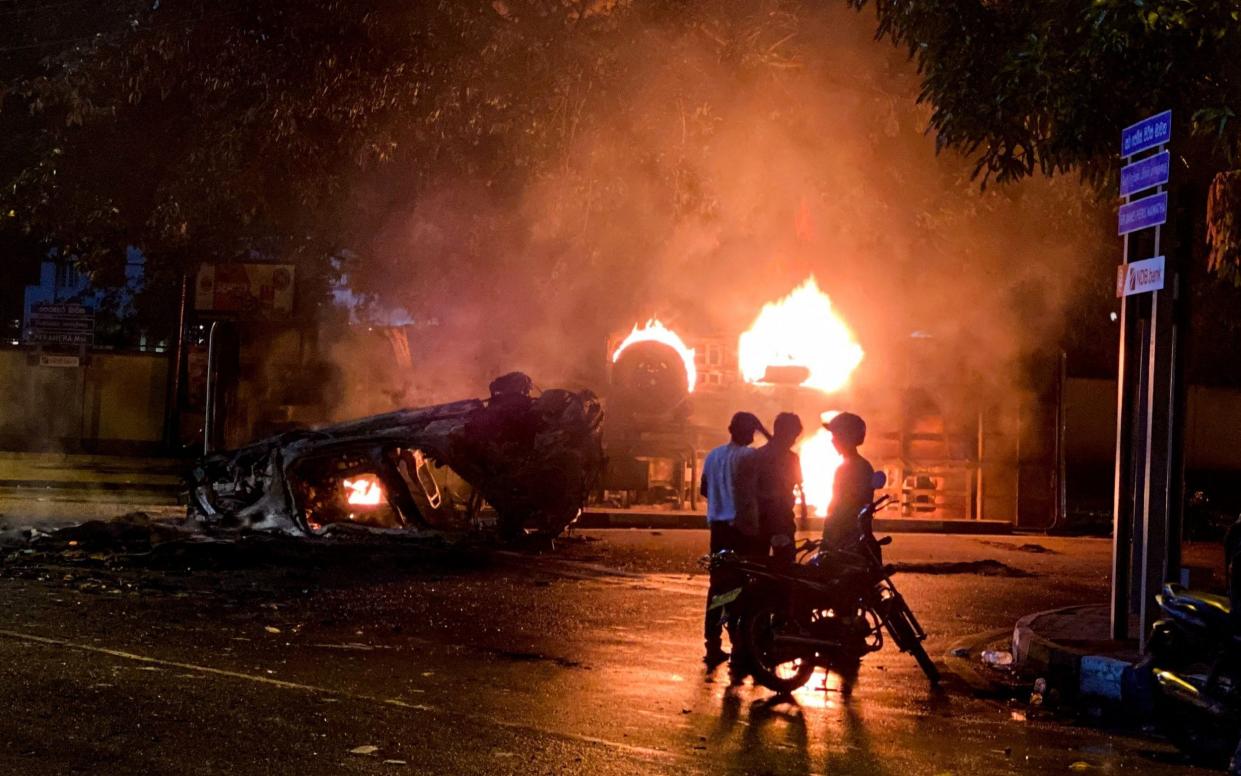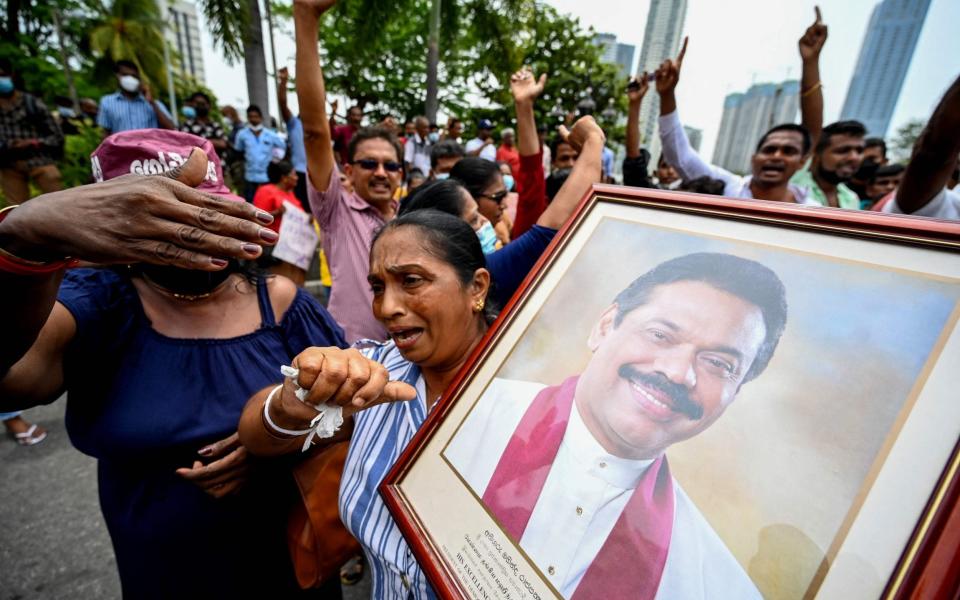How Chinese debt and organic farming tipped Sri Lanka into bloody chaos

Sri Lanka’s powerful Rajapaksa family dynasty always made a point of pouring billions of dollars – all of it from China – into vote-winning projects across its traditional heartland in the south of the island.
A new harbour in Hambantota, derided as a Chinese naval base in waiting, an airport, Mattala Rajapaksa International, which has no scheduled flights, and a new highway with an exit ramp specially built close to the Rajapaksa family home. China is also paying for the controversial $1.4 billion Colombo Port City development.
How much the Rajapaksas skimmed off from all these billion dollar deals has always been a matter of speculation, but no-one doubted that this family fiefdom has done very well out of the China connection.
Even the evidence – discovered too late – that Chinese contractors had brazenly constructed some of the Hambantota harbour buildings in the shape of the letters “CHINA” could not dent the Rajapaksas’ huge popularity among southern farmers, fishermen and manual labourers.
How times change. On Monday night, after a day of violent clashes in Colombo, the Rajapaksa’s southern ancestral home was burnt to the ground. A mob which tried to burn a building in nearby Weeraketiya was fired upon, leaving two people dead.
Mahinda Rajapaksa, who resigned as prime minister amid the turmoil, was smuggled out of his official Colombo residence Temple Trees by crack Sri Lanka Army troops. Twenty four hours earlier, his son Yoshitha left the country secretly on a Singapore Airlines flight.

The Rajapaksas were adept at tapping Beijing for cash, seemingly unconcerned to see their island nation fall ever-deeper into China’s pocket. Sri Lanka has borrowed at least $8 billion from China and is asking for another $2.5 billion as it tries to pay for essential imports of fuel and medical supplies. The country has defaulted on its foreign debt repayments and has useable foreign reserves of less than $50 million, lower even than Zimbabwe. Hospitals are having to reuse breathing tubes for babies.
Hambantota harbour was given to China in 2017 on a 99-year lease. China has always made a point of saying that it’s loans are on competitive terms but was none too happy when Sri Lanka’s finance minister opened talks about a rescue package with the International Monetary Fund (IMF). China’s ambassador to Colombo, Qi Zhenhong, told a meeting in Colombo: “China has done its best to help Sri Lanka not to default but sadly they went to the IMF.”
The island nation’s slide to near bankrupty began in 2019 soon after the Rajapaksas were voted back into power. After taking the populist – but financially suicidal – decision to sharply reduce taxes, the government announced that it would ban the use of chemical fertilisers, forcing farmers to switch to organic. This wiped out successive rice harvests and destroyed Sri Lankan farmers’ formally unshakeable support for the ruling clan.
The move to near total economic collapse started in March when the Central Bank gave up ‘pegging’ the Sri Lanka rupee at a rate of 200 to the dollar. The rupee went into freefall and has lost 80 per cent against the dollar.
Tankers have refused to offload their cargos, leading to mile-long queues at petrol stations and daily power cuts of 4 hours or more. Prices of rice, bread and vegetables are doubling every few days, leaving consumers in despair.
Gotabaya Rajapaksa, president since 2019, has defied daily shouts of “Gota go home”. Mr Rajapaksa has tried to ride out the storm but with MPs being lynched and his ancestral home destroyed, his ship is foundering. Students are blockading the entrance to the international airport looking for MPs trying to skip the country.
All the money in China cannot help them now.


